View this article in another language
- 한국어
- English
- 日本語
- 中文
- العربية
- Español
- Français
- Deutsch
- Pусский
- Tiếng Việt
- Indonesian
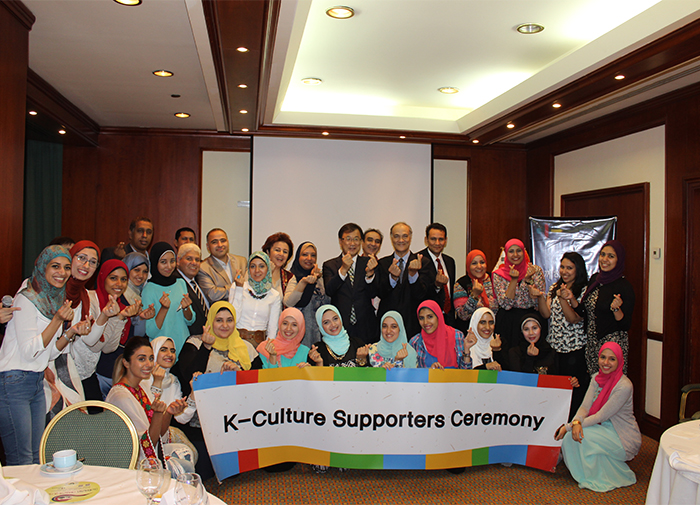
Cairo's 'K-Culture Supporters' and other fans of all things Korean pose for a photo.
Ramadan is the ninth month of the Islamic lunar calendar and it ran from June 6 to July 5, 2016. Every day during the month, devout Muslims around the world spend the daylight hours in a complete fast. During the blessed month of Ramadan, devout Muslims all over the world abstain from all food, drink, and other physical needs during the daylight hours, including smoking or sex. Ramadan is much more than just not eating or drinking, however. It is a time to purify the soul, refocus attention on God, and practice self-discipline and sacrifice. Fasting during the month of Ramadan is considered one of the five pillars of Islam, five activities that shape a Muslim's life. Prayer occurs on a daily basis, pilgrimage is done once in a lifetime, and charity and professing one's faith are both ongoing. Fasting during the month of Ramadan is an annual observance, every year. Muslims take an entire month out of their lives to observe this strict fast and rededicate themselves to worship and faith. Muslims are called upon to use this month to re-evaluate their lives in light of Islamic guidance.
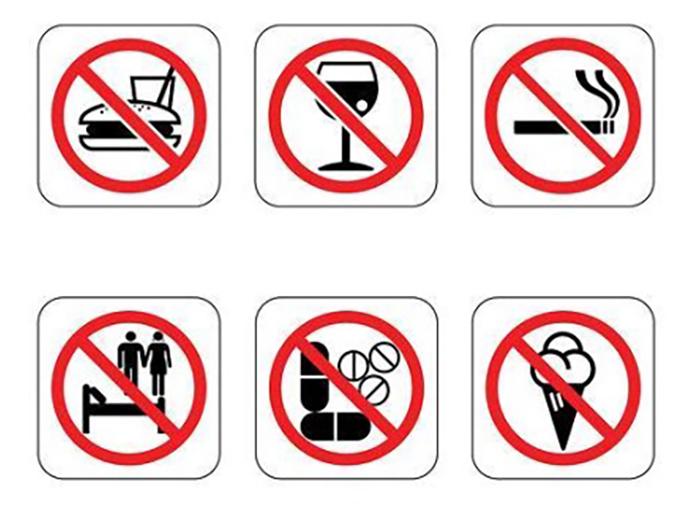
The prohibitions of Ramadan
Iftar or fitoor is a meal served at the end of the day during Ramadan to break the day's fast: literally "breakfast." Iftar is the meal served at sunset during Ramadan, as Muslims break their daily fast. Muslims traditionally first break the fast with dates and either water or a yogurt drink. After the maghrib prayer, they then have a full-course meal, consisting of soup, salad, appetizers and main dishes. In some societies, the full-course meal is delayed later into the evening or even into the early morning. Traditional foods vary by country. Iftar is very much a social event, involving family and community. It's common for people to host others for dinner. It's also common for people to invite and share food with those less fortunate. The spiritual reward for charitable giving is considered to be especially significant during Ramadan. For health reasons, Muslims are advised not to over-eat during iftar or at any other time.
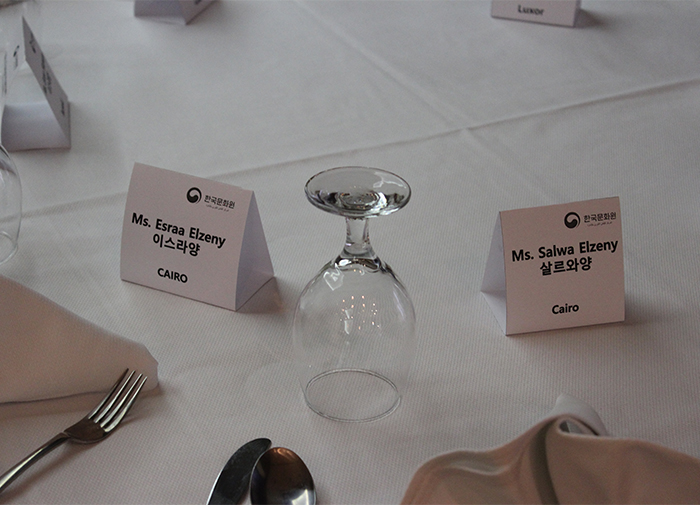
Personal place cards are on the Iftar table.
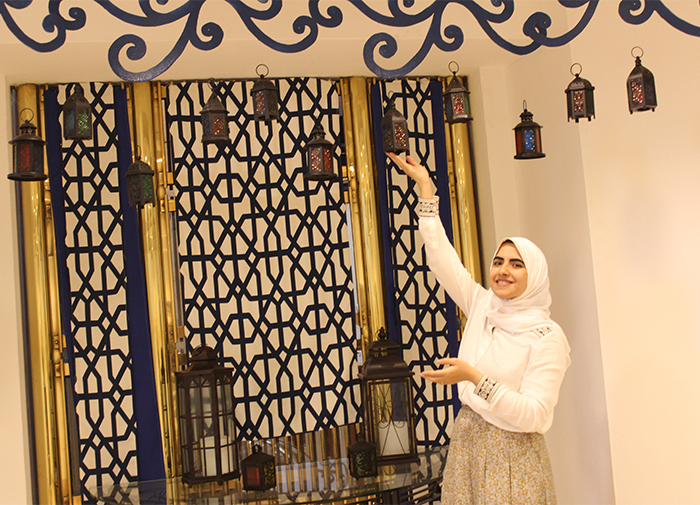
Esraa Elzeny, a Korea.Net honorary reporter, poses for a photo with a Ramadan lantern, a fanous in Arabic.
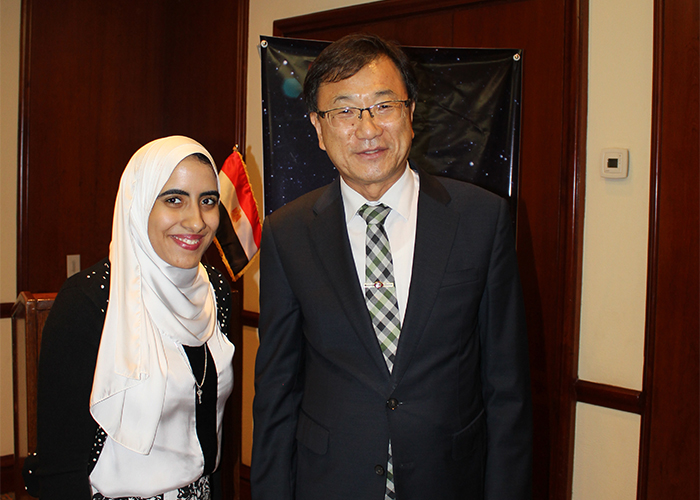
Salwa Elzeny (left), a Korea.Net honorary reporter, poses for a photo with Park Jae Yang, director of the Korean Cultural Center in Cairo, after the Iftar dinner at the Korean Cultural Center in Cairo.
Since the establishment of the establishment of diplomatic ties between South Korea and Egypt in 1995, the two countries have expanded cooperation and exchanges across various fields, such as energy, industry, culture and heritage, and the arts. In 2014, the Korean Cultural Center was establishment in Egypt, Korea's first cultural center in the Middle East, and the two countries are now building and cooperating ever more closely, increasing the number of mutual exchanges each year. The Korean Cultural Center in Cairo was launched in November 2014 as an arm of the Korean Ministry of Culture, Sports and Tourism, in the Arab Republic of Egypt. Its goals are to help define and explain Korean traditions, art and history to the Egyptian people, and to help improve the image of South Korea in the eyes of the Egyptian people. Visitors can learn about many Korean habits or traditions, in addition to the history of the Korean Peninsula. The Korean Cultural Center in Cairo seeks to provide all the necessary scientific and learning materials, as well as hold cultural events that help to promote the dissemination of Korean norms and expectations. As one of South Korea's true fans, I consider the Korean Cultural Center in Cairo to be my second home because it provides us with a lot of activities to introduce Korea to us.
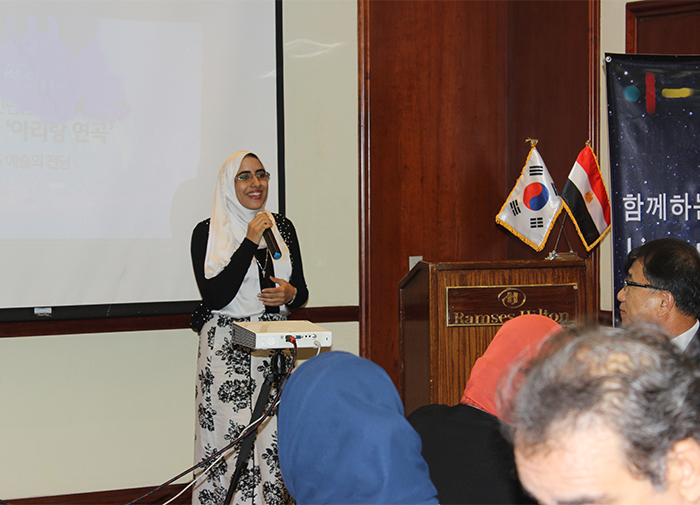
Salwa Elzeny, a Korea.net honorary reporter, introduces Cairo's 'K-Culture Supporters' and talks about her experiences with the Korean Cultural Center in Cairo.
In this holy month, the cultural center celebrated with all its fans and members, and it was a lovely iftar hosted by Park Jae Yang, the media and cultural counselor at the Embassy of the Republic of Korea in Egypt, and director of the Korean Cultural Center in Cairo. All the guests were able to share their Korean experiences with the audience. Some of them wanted to add Korean studies to various Egyptian curricula, and some of them have written books about their experience in Korea. Some of them even promised to air the Korean soap opera "A Thousand Days’ Promise" on Egyptian television, as well as many other Korean soap operas.
I was able to give a short presentation about Cairo's "K-Culture Supporters" club and I talked about my experiences with the cultural center and have been able to expand my social circle through cultural center activities. Indeed, I've been able to improve my Korean language ability and the center has even helped me to write some of my articles as an official Korea.net honorary reporter.
By Salwa Elzeny
Korea.net Honorary Reporter
Photos: Salwa Elzeny